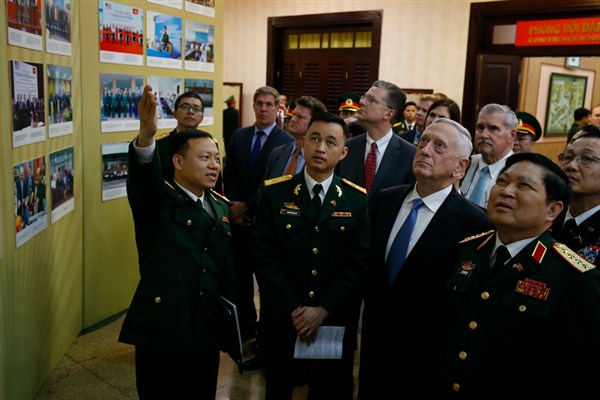Over the past five years, no country in Southeast Asia has challenged China’s regional strategic ambitions more assertively than Vietnam. Repeatedly standing up to Beijing’s aims in the South China Sea, Vietnam has attempted to allow foreign oil exploration in disputed maritime areas and, like China, built up the submerged reefs, small islets and banks it occupies and added installations, though on a much smaller scale. It has, at times, tried to work with its neighbors, such as the Philippines under former President Benigno Aquino III, to highlight what it sees as China’s illegal behavior in the South China Sea.
To push back against China, Vietnam built closer strategic ties with the United States, too, moving so close that Hanoi appeared ready, before 2017, to possibly end its traditional approach of hedging between Beijing and Washington. Hanoi and Washington established a comprehensive partnership under the Obama administration, which lifted a ban on U.S. arms sales to Vietnam and brought the two countries’ militaries closer together.
In the first year of Donald Trump’s presidency, however, Vietnam has appeared less sure of its bet on ties with the U.S., though it warmly welcomed a visit by Secretary of Defense James Mattis last week. Hanoi has also seemingly backed down a bit from its tough approach to China in recent months.

